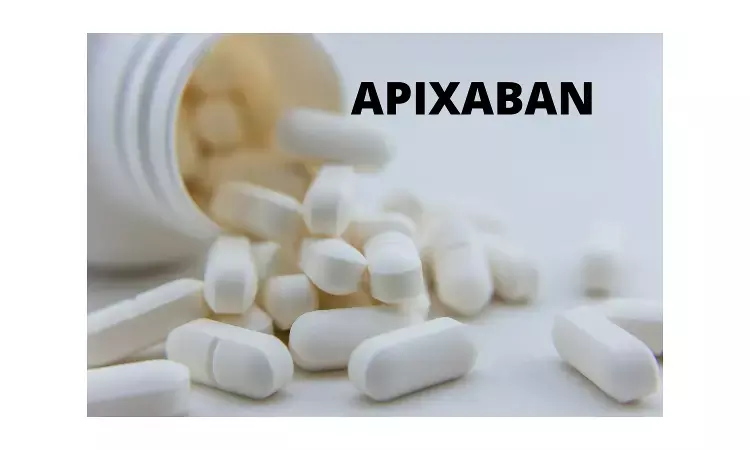- Home
- Medical news & Guidelines
- Anesthesiology
- Cardiology and CTVS
- Critical Care
- Dentistry
- Dermatology
- Diabetes and Endocrinology
- ENT
- Gastroenterology
- Medicine
- Nephrology
- Neurology
- Obstretics-Gynaecology
- Oncology
- Ophthalmology
- Orthopaedics
- Pediatrics-Neonatology
- Psychiatry
- Pulmonology
- Radiology
- Surgery
- Urology
- Laboratory Medicine
- Diet
- Nursing
- Paramedical
- Physiotherapy
- Health news
- Fact Check
- Bone Health Fact Check
- Brain Health Fact Check
- Cancer Related Fact Check
- Child Care Fact Check
- Dental and oral health fact check
- Diabetes and metabolic health fact check
- Diet and Nutrition Fact Check
- Eye and ENT Care Fact Check
- Fitness fact check
- Gut health fact check
- Heart health fact check
- Kidney health fact check
- Medical education fact check
- Men's health fact check
- Respiratory fact check
- Skin and hair care fact check
- Vaccine and Immunization fact check
- Women's health fact check
- AYUSH
- State News
- Andaman and Nicobar Islands
- Andhra Pradesh
- Arunachal Pradesh
- Assam
- Bihar
- Chandigarh
- Chattisgarh
- Dadra and Nagar Haveli
- Daman and Diu
- Delhi
- Goa
- Gujarat
- Haryana
- Himachal Pradesh
- Jammu & Kashmir
- Jharkhand
- Karnataka
- Kerala
- Ladakh
- Lakshadweep
- Madhya Pradesh
- Maharashtra
- Manipur
- Meghalaya
- Mizoram
- Nagaland
- Odisha
- Puducherry
- Punjab
- Rajasthan
- Sikkim
- Tamil Nadu
- Telangana
- Tripura
- Uttar Pradesh
- Uttrakhand
- West Bengal
- Medical Education
- Industry
Apixaban a better anticoagulant compared to Rivaroxaban in AF, finds JAMA study

Atrial fibrillation incidence has increased the aging of populations worldwide, and increased survival with chronic diseases, the incidence and prevalence of atrial fibrillation (AF) are rising, justifying the term global epidemic.
Rivaroxaban and rivaroxaban are comparitively the most frequently prescribed oral anticoagulants for ischemic stroke prevention in patients with atrial fibrillation, their effectiveness and safety is uncertain.
A retrospective study by Dr Ray A Wayne PhD and team has revealed that amidst Medicare beneficiaries 65 years or older patients with atrial fibrillation, rivaroxaban showed higher adverse events compared with apixaban. Further it was significantly associated with increased risk of major ischemic or hemorrhagic events.
The findings of the study are published in JAMA Network.
The objective of the study was to compare major ischemic and hemorrhagic outcomes in patients with atrial fibrillation treated with rivaroxaban or apixaban.
The study was a retrospective cohort study using computerized enrollment and claims files for US Medicare beneficiaries 65 years or older. A total of 581 451 patients with atrial fibrillation began rivaroxaban or apixaban treatment and were followed up for 4 years, The primary outcome was a composite of major ischemic (stroke/systemic embolism) and hemorrhagic (intracerebral hemorrhage/other intracranial bleeding/fatal extracranial bleeding) events. Secondary outcomes were nonfatal extracranial bleeding and total mortality (fatal ischemic/hemorrhagic event or other death during follow-up). Rates, hazard ratios (HRs), and rate differences (RDs) were adjusted for baseline differences in comorbidity with inverse probability of treatment weighting.
The results of the study were found to be
• Study patients aged 77.0 years; 291966 women; 134393 receiving reduced dose had 474605 person-years of follow-up.
• The adjusted primary outcome rate for rivaroxaban was 16.1 per 1000 person-years vs 13.4 per 1000 person-years for apixaban (RD, 2.7).
• The rivaroxaban group had increased risk for both major ischemic events ( RD, 1.1 ) and hemorrhagic events ( RD, 1.6), including fatal extracranial bleeding ( RD, 0.4).
• Patients receiving rivaroxaban had increased risk of nonfatal extracranial bleeding (RD, 21.1), fatal ischemic/hemorrhagic events (RD, 1.2), and total mortality ( RD, 3.1).
• The risk of the primary outcome was increased for rivaroxaban in both those receiving the reduced dose (RD, 6.4)and the standard dose (RD, 1.8) groups.
Wayne and team concluded that "Among Medicare beneficiaries 65 years or older with atrial fibrillation, treatment with rivaroxaban compared with apixaban was associated with a significantly increased risk of major ischemic or hemorrhagic events."
Reference: doi:10.1001/jama.2021.21222
Medical Dialogues consists of a team of passionate medical/scientific writers, led by doctors and healthcare researchers. Our team efforts to bring you updated and timely news about the important happenings of the medical and healthcare sector. Our editorial team can be reached at editorial@medicaldialogues.in.
Dr Kamal Kant Kohli-MBBS, DTCD- a chest specialist with more than 30 years of practice and a flair for writing clinical articles, Dr Kamal Kant Kohli joined Medical Dialogues as a Chief Editor of Medical News. Besides writing articles, as an editor, he proofreads and verifies all the medical content published on Medical Dialogues including those coming from journals, studies,medical conferences,guidelines etc. Email: drkohli@medicaldialogues.in. Contact no. 011-43720751


